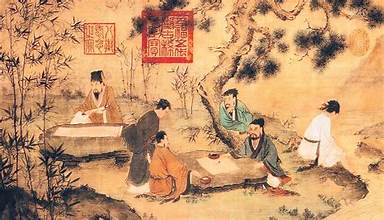
This course offers an in-depth exploration of the major philosophical traditions that emerged in ancient China, specifically focusing on their theories and practical approaches to strategic governance. We will examine the foundational ideas of Confucianism, Daoism, Legalism, and Mohism, as well as the strategic military philosophy of Sun Tzu's Art of War. The course situates these diverse philosophical schools within the turbulent historical context of the Spring and Autumn (Chunqiu 春秋) and Warring States (Zhanguo 戰國) periods (c. 771–221 BCE). This era, marked by profound political fragmentation and intellectual efflorescence, is aptly known as the "Hundred Schools of Thought" (諸子百家, zhūzǐ bǎijiā). Students will engage critically with the ancient Chinese Philosophies, analyze the core tenets of each school concerning leadership, social order, political authority, law, ethics, and statecraft, and consider their enduring influence on Chinese political thought and practice. The objective is to understand not only the distinct contributions of each school but also the dynamic interplay and debates between them as they sought to provide solutions to the pressing issues of their time.
- Teacher: Arvin Revagorda